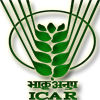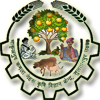WELCOME TO KVK SULTANPUR U.p. (Farm SCiENCE CENTRE)
The first Krishi
Vigyan Kendra (KVK) of U.P. was established in Sultanpur District by
the Kamla Nehru Memorial Trust in December, 1976 . This project was
sponsored by Indian council of Agricultural Research (ICAR),
New Delhi for all round development of farming community in the
district.
The concept of the KVK was to educate and motivate the farmers, farm-women and rural youth regarding application of latest proven technologies as such or in modified forms by organizing specialized pr generalized training courses as per needs of the area . Long duration vocational training was another aspect to build-up desirable attitude to provide new knowledge and skill in agriculture and allied activities to the rural youth for generating self employment.. The training was based on the principles of "learning by doing and teaching by doing".
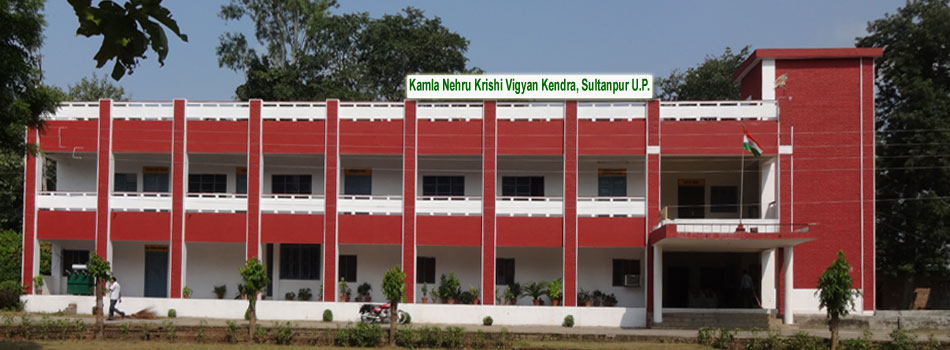
The Need
As a whole, the district is characterized by typical socio-economic and agro ecological situation. The majority of the farming community falls under marginal and small categories with fragmented holding scattered at different locations and poor resources.
The soil condition of the district is inherently productive but a good proportion of land is best with productive as stated earlier.
Thus, there is a constant need for vertical as well as horizontal improvement of agricultural production in an integrated manner to uplift the socio-economic condition of the farming community. The majority of farming community suffers with a number of problems such as low level of knowledge, poor credit facility, input support, communication, poor condition of soil ,fragmented holding and unemployment. keeping in view the above, the following points have been taken into consideration for improvement of agricultural development in the district-
Need for improvement of farm productivity of cultivable land by providing information about improved scientific technology, use off improved implements, seed of HYV, introduction of new crops suited to their farming system, pest and nutrient management etc.
Need for improvement of soil condition specially, sodic, waterlogged and eroded land by employing low cost techniques for land crop management, as well as management of fruit and forest trees according to land capability and needs of the farmers.
Need for diversification in allied activities like, dairy, goat keeping, nursery raising, farm/ agro –forestry, fish culture, fruit and vegetable cultivation. there was also a need to promote agro-based activities like rope-making, basket making, repairing of diesel engine and pump set, welding, fabrication and value addition of farm products for generating self-employment and additional income to the family.
- The above stated fact indicate that a multi-disciplinary approach is required for formulation of action plan in the district for agro-ecological situation. before developing an action plan and its implementation, future perspective in relation to demographic, ecological and socio-economic compulsions have been also considered to produce more food from lees and less land water using sustainable technologies to provide more income an livelihood opportunities.
Thrust Areas
- Improvement of productivity of crops, fruits and vegetables with the introduction of H.Y.V, Hybrid varieties latest management of technology and package of practices.
- Reduction in post harvest losses and promotion of value addition.
- Breed improvement, health care and feeding management in livestock.
- Promotion of organic farming, improvement of soil health and minimization of chemical use.
- Promotion of integrated farming system.
- Promotion of IPM/INM.
- Management of farming practices in rain fed areas.
- Crop diversification and introduction of high value crops with assured marketing at reasonable price.
- Soil and water management.
- Promotion of Agro-based industries for income generation.
- To established as resource and knowledge generation center of agricultural technology.
- KVK's Mandates : Assessment, Refinement & Demonstration of Technologies/ Products
Activities :
- On-farm testing to identify the location specificity of agricultural technologies under various farming systems.
- Organize Frontline Demonstrations to establish production potential of technologies on the farmer’s fields.
- Training of farmers to update their knowledge and skills in modern agricultural technologies,
- Training of extension personnel to orient them in the frontier areas of technology development.
- To work as resource and knowledge centre of agricultural technology for supporting initiatives of public, private and voluntary sector for improving the agricultural economy of the district.
- The seed and planting materials produced by the KVK are also to be made available to the farners.
Technology assessment and refinement through demonstration of technology / products and its dissemination through training of farmers and extension personnel.
Facilities at KVK Sultanpur U.P.
The KVK has started its function from sept.1977 and priority was given for development of infrastructural facilities like buildings, development of campus, instructional units and other facilities required for on-campus activities . This took about four year to fulfill the minimum requirements, In the mean time all the activities related to ‘Transfer of Technology’ have been conducted on farmers field . there after , on-campus activities were started at main campus and its sub-units located under different agro-ecological situations .The achievements made by KVK during the last two decades in relation to infrastructural development, training programs for practicing farmers ,rural youth and extension functionaries , demonstration of latest technologies under “Lab to Land Program", Front Line Demonstration- Oil and Pulses), On-farm trails as well as operational Research project (Alkali Reclamation) are presented as under –
Infrastructure...Well developed infrastructural facilities and available human resource are soul of any institution . An institution like KVK which has been created as Agricultural Polytechnic for providing all information at a single point . The important of such facilities become more valuable for imparting vocational training, demonstrating technological performance and their relevance under specific condition. Keeping in view , the KVK has developed strengthened its infrastructural facilities from time to time as per needs of the farming community for providing better knowledge , improving the skill and efficiency and changing the behavioral attitude as well as maximizing the adoption rate of latest technological for improving the agricultural facilities are presented below –
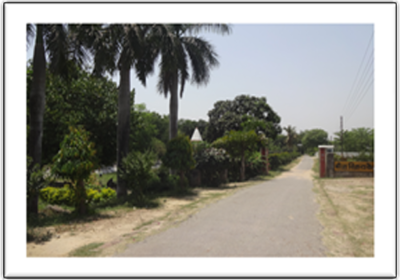 |
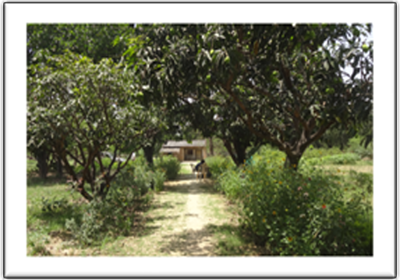 |
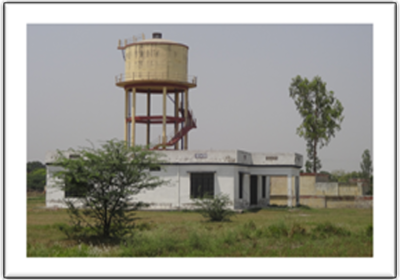 |
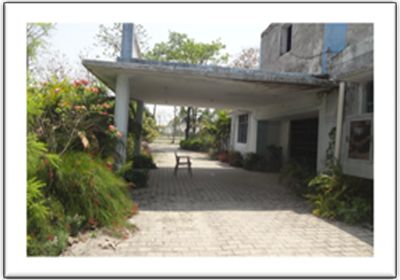 |
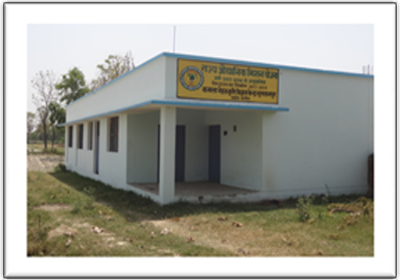 |
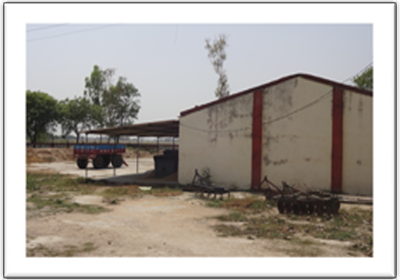 |
Details of Infrastructure
| Particulars | Area (Sq. Mt.) | Occupancy |
| A. Building | ||
| (1) Office building | 713.75 | 17 rooms with hall and verandah |
| (2) Office | 23.23 | Two rooms |
| (3) Staff room | 101.11 | Seven rooms |
| (4) Library | 22.30 | One room |
| (5) Audio-visual Aid room | 54.64 | One room |
| (6) Lecture Hall | 78.99 | One |
| (8) Conference Hall | 118.49 | One |
| (9) Information Centre | 54.64 | One |
| (10) Staff Quarters | - | Seventeen |
| (11) Supporting Staff Quarters | - | Four |
| C. Demonstration units at KVK Headquarters | ||
| (1) Agri. Engineering workshop with office, store and training shed | 418.21 | One unit |
| (2) Home Science Training Unit | 54.08 | One unit |
| (3) Fruit and Vegetable Preservation Lab | 25.09 | One unit |
| (4) Soil Testing Lab | 54.08 | One unit |
| (5) Seed Sale cum Nursery Unit | 32.52 | One unit |
| (6) Wormi-Composting | - | One Unit |
| (7) Duckery unit | - | One Unit |
Instructional Farms for Training and Demonstration
KVK Sultanpur has uniqueness of having large scale demonstration units covering crop production, horticulture agro forestry and fisheries program through development and reclamation of waste land in the form of sodic soil, ravines, water logged areas, and eroded lands. As per details given below:
| S.No. | Name of Location | Area (Ha.) | Demonstration Units |
| 1 | Head Quarters | 7.00 | Building Crop production Orchard, Vegetable Nursery, fish pond |
| 2 | Kinaura Farm | 44.93 | Crops production, Orchard, Forestry, Fish ponds, Buildings |
| 3 | Itkauli Farm | 12.75 | Orchard, Forestry and Horticulture Nursery |
| 4 | Faridipur Farm | 10.25 | Crop Production, Orchard, Vegetable, Forestry, Buildings |
| 5 | Dikhauli | 6.36 | Fish pond and Forestry |
Besides the aforesaid infrastructure the KVK has got 1 vehicle, 2 Tube wells at farm machines, tools and equipment necessary for training based on work experience.
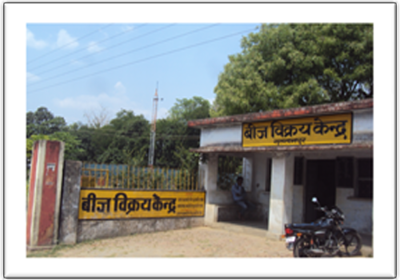 |
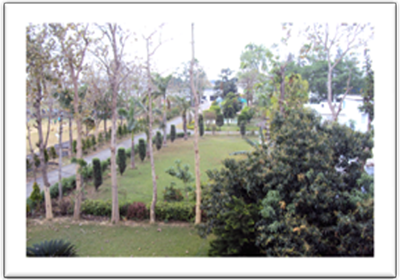 |
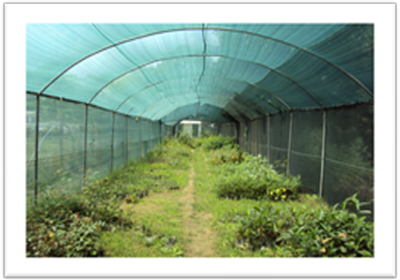 |
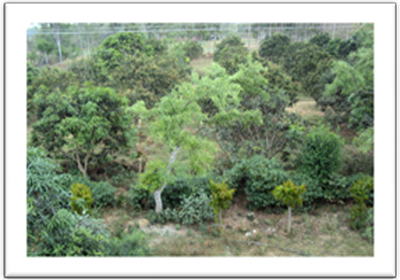 |
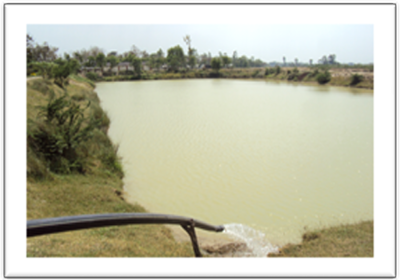 |
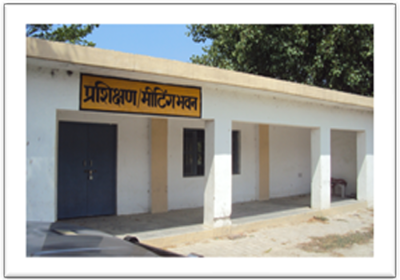 |
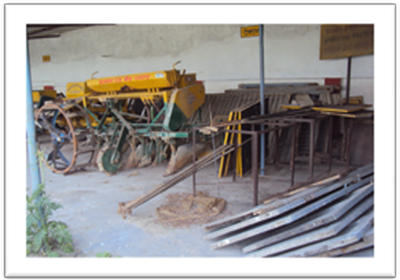 |
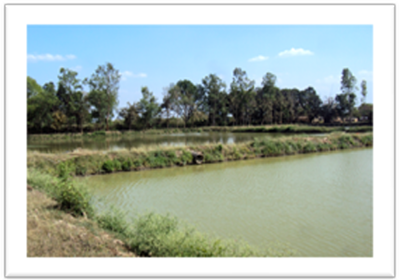 |
Foreign Collaboration : (1984-1993)
Kamla Nehru Memorial Trust was collaborated Dutch Government (Netherland) with Indo-Dutch Project under Kamla Nehru Krishi Vigyan Kendra for development of this region and rural youth / formers.
Objectives:
1.
Water Soil Conservation
2. Water Distribution and Utilization
3. Technology Transformation
4. Motivation for Youth / Form Women.
Dignitaries and Eminent Scientists who applauded our achievements.
- Dr. Manmohan Singh (1988) Deupty Chairman, Planning Commission, Govt. of India
- Mohd. Fazal (1982) Member of Planning Commission, Govt. of India
- Late Sri Chandu Lal Chandrakar (1987) State Minister, Rural Development, Govt. of India.
- Sri Ram Surat Upadhyay (1987) Rural Development Minister, Govt. of U.P.
- Sri Rajnath Singh (1992) Minister Technical Education, Govt. of U.P.
- Dr. M. S. Swaminathan, Ex. Director General, Indian Council of Agricultural Research, New Delhi.
- Dr. Kirti Singh, Farmer V.C. of SAU Faizabad, Palampur (U.P.) and Raipur (Chhattigarh) and Chairman ASRB New Delhi.
- Dr. C. Prasad, Deupty Director General ICAR
- Dr. P. Das, Deupty Director General ICAR
- Dr. M. D. Pathak, Director General UPCAR Lucknow
- Dr. M. L. Dewan, Chief F. A. 0., Asian Regional Bureau (Retd.) & Member, National Land Use & Conservation Board, GOL
- Sri T. N. Saraf, I. A. S. (Retd.) UN, FAO, Representative at the United Nations, N. Y. (Retd.).
- Dr. G. S . Baweja, Joint Commissioner, FAO/UN, Agril. Ext. (GOI), (Retd.) FAO/UN. Loas.
- Dr. L. M. Jaswani, A. D. G. (ICAR) Food & Forage (Retd.), New Delhi.
- Dr. D. K. Mishra, Adviser (Training) FAO, Ex. Director Extension, Rajasthan Agril University, FAO - Bangladesh.
- Sri H. N. Patel, Member, F AO Consultancy Mission.
- Sri S. K. Raheja, Member, F AO Consultancy Mission.
- Sri S. K. Arora, lAS, Director Manage Hyderabad.
- Dr. M. Eisa, World Bank Mission on Horticulture.
